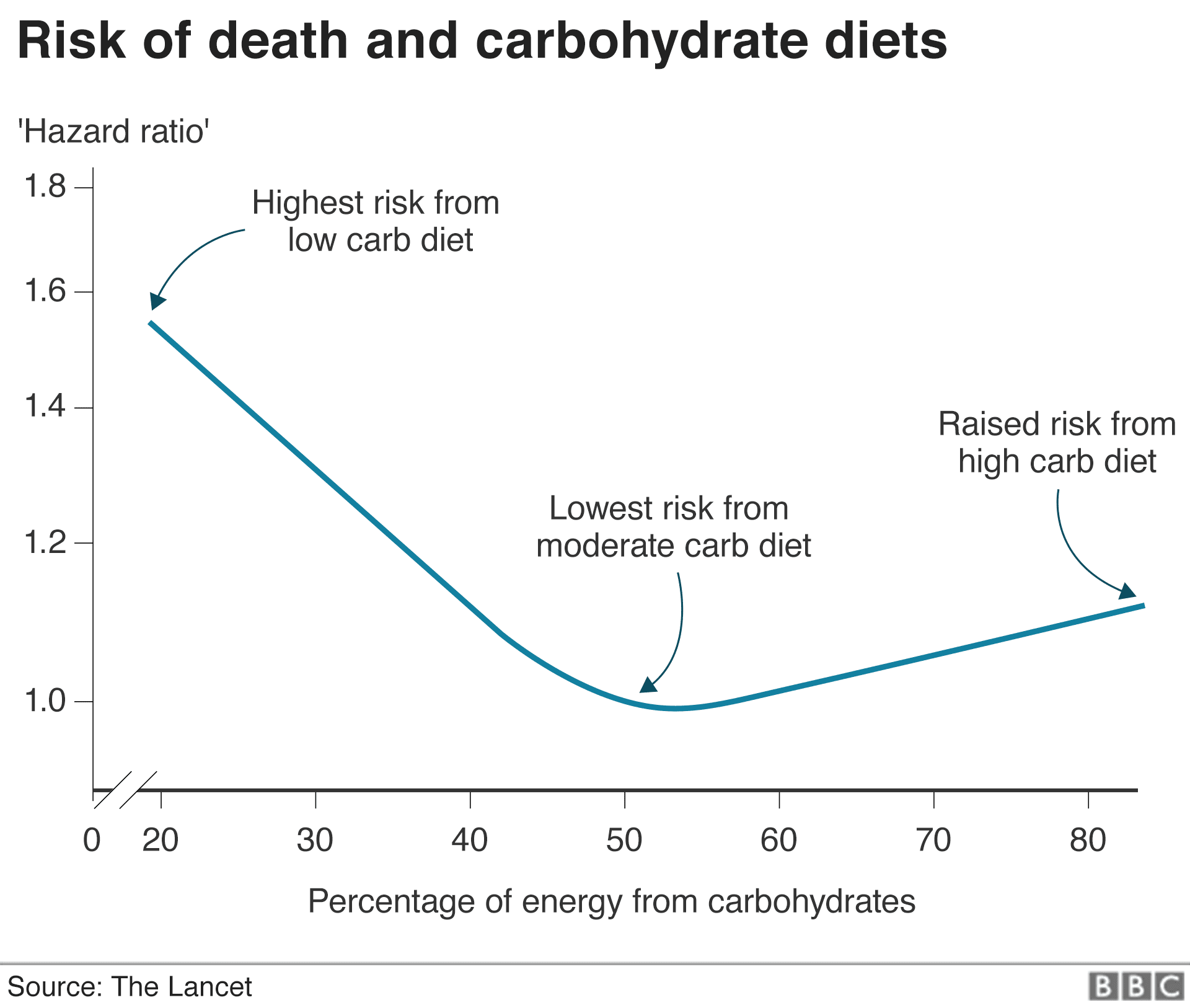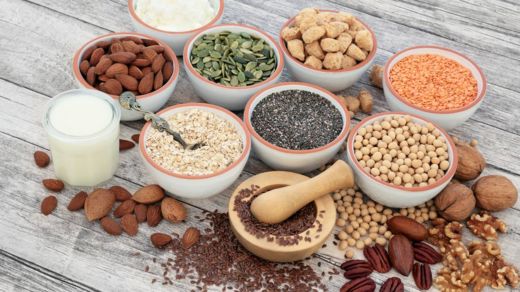TOP 5 HEALTH BENEFITS OF CHEESE Cheese contains many health benefits, which we will considered here today. Today I will outline 5 health benefits of cheese Cheese contains many nutrients, including vitamins such as vitamin C , vitamin B6 , vitamin B12 , vitamin A, vitamin D, vitamin E and vitamin K. Other [1] vitamins such as thiamin, riboflavin , niacin are also found in different types of cheese. Adding it to your diet also provides certain vital minerals such as calcium , sodium , zinc , phosphorus , potassium and iron to the human body. Below are the top 5 health benefits of cheese 1. Dental Care Cheese has very high calcium content, the first and foremost thing you need for strong teeth. Moreover, it is very low in lactose content. Older the cheese, lower the lactose content in it. This also is beneficial for the teeth as any form of sugar (glucose, maltose or lactose) in food can harm the teeth 2.Osteoporosis O...
Low-carb diets could shorten life, study suggests

A low-carb diet could shorten life expectancy by up to four years, a study suggests.
Low-carb diets, such as Atkins, have become increasingly popular for weight loss and have shown promise for lowering the risk of some illnesses.
But a US study over 25 years indicates that moderate carb consumption - or switching meat for plant-based protein and fats - is healthier.
The study relied on people remembering the amount of carbohydrates they ate.
'Gaining widespread popularity'
In the study, published in The Lancet Public Health, 15,400 people from the US filled out questionnaires on the food and drink they consumed, along with portion sizes.
From this, scientists estimated the proportion of calories they got from carbohydrates, fats, and protein.
After following the group for an average of 25 years, researchers found that those who got 50-55% of their energy from carbohydrates (the moderate carb group and in line with UK dietary guidelines) had a slightly lower risk of death compared with the low and high-carb groups.

Carbohydrates include vegetables, fruit and sugar but the main source of them is starchy foods, such as potatoes, bread, rice, pasta and cereals.
The NHS Eatwell Guide provides details on how to achieve this kind of healthy, balanced diet and reduce the risk of serious illnesses in the long term.
Researchers estimated that, from the age of 50, people in the moderate carb group were on average expected to live for another 33 years.
This was:
- four years more than people who got 30% or less of their energy from carbs (extra-low-carb group)
- 2.3 years more than the 30%-40% (low-carb) group
- 1.1 years more than the 65% or more (high-carb) group
The findings were similar to previous studies the authors compared their work with, which included more than 400,000 people from more than 20 countries.
 GETTY IMAGES
GETTY IMAGES
The scientists then compared low-carb diets rich in animal proteins and fats with those that contained lots of plant-based protein and fat.
They found that eating more beef, lamb, pork, chicken and cheese in place of carbs was linked with a slightly increased risk of death.
But replacing carbohydrates with more plant-based proteins and fats, such as legumes and nuts, was actually found to slightly reduce the risk of mortality.
Dr Sara Seidelmann, clinical and research fellow in cardiovascular medicine from Brigham and Women's Hospital in Boston, who led the research, said: "Low-carb diets that replace carbohydrates with protein or fat are gaining widespread popularity as a health and weight-loss strategy.
"However, our data suggests that animal-based low carbohydrate diets, which are prevalent in North America and Europe, might be associated with shorter overall life span and should be discouraged.
"Instead, if one chooses to follow a low carbohydrate diet, then exchanging carbohydrates for more plant-based fats and proteins might actually promote healthy ageing in the long term."
'Not enough to focus on nutrients'
The authors speculate that Western-type diets that restrict carbohydrates often result in lower intake of vegetables, fruit, and grains and lead to greater consumption of animal proteins and fats, which have been linked to inflammation and ageing in the body.
Prof Nita Forouhi, from the MRC epidemiology unit at University of Cambridge, who was not involved in the study, said: "A really important message from this study is that it is not enough to focus on the nutrients, but whether they are derived from animal or plant sources.
"When carbohydrate intake is reduced in the diet, there are benefits when this is replaced with plant-origin fat and protein food sources, but not when replaced with animal-origin sources such as meats."
However, there are limitations to the study.
The findings show observational associations rather than cause-and-effect and what people ate was based on self-reported data, which might not be accurate.
And the authors acknowledge that since diets were measured only at the start of the trial and six years later, dietary patterns could have changed over the subsequent 19 years.
'High fibre intake'
Prof Tom Sanders, professor emeritus of nutrition and dietetics at King's College London, also pointed out that the use of a food questionnaire in the study led to people underestimating the calories and fat they had eaten.
"One explanation for the finding in this and the other US studies is that it may reflect the higher risk of death in the overweight/obese, who may fall into two popular diet camps - those favouring a high-meat/low-carbohydrate diet and those favouring a low-fat/high-carbohydrate diet," he added.
Dr Alison Tedstone, chief nutritionist at Public Health England, said: "This provides further evidence that low-carb diets could be incredibly damaging to our long-term health.
"High-fibre starchy carbohydrates should provide about half of our energy, including fruit and vegetables, while reducing intake of higher fat meat and dairy."
Source : BBC
Comments
Post a Comment